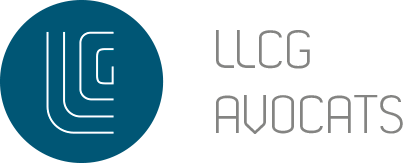Rights to personality and rights to image
Advice on personality and image rights
The right to image is an attribute of personality and is protected under Article 9 of the French Civil Code and Article 8 of the European Convention of Human Rights (ECHR).
Non-one is authorised to disclose or exploit an image of any person without their agreement.
LEGRAND LESAGE-CATEL lawyers act as advisers and litigators in lawsuits reliant on the principle of respect for personality, while seeking degrees of contractual freedom moderated by the rules of proportionality (measures suited to a given purpose).
Advisory Services
Our advice relates to contracts governing the assignation and exploitation of rights to images. Applicable law is that of the advertising industry, as it extends to publishing, broadcasting and other audiovisual media.
Images of children, adults, professional models, or holidaymakers in leisure environments, raise specific issues that require a specialist lawyer to draft suitable contractual clauses. What constraints on the use of personal images in book illustrations, television broadcasting, poster advertising campaigns and catalogues? What authorisations are needed for the use of images? In what wording?
Specialist lawyers are aware of the exceptions, conditions and limitations placed upon the right to press freedom of information. They are aware of the issues raised by images captured by video-surveillance and other security systems, and of the possible effects of the identification or failure to identify the persons so represented …
Litigation
Many law suits relate to the use of personal images in the information and advertising fields.
LEGRAND LESAGE-CATEL lawyers intervened for example in the “Brazil” campaign for a major sugar group where the court ruled that it was impossible to identify a Brazilian dancer shown on sugar cube packaging. The same principle prevailed when applied to photographs in travel brochures.
Rulings sought in other lawsuits have been grounded in the extensiveness of the rights to images assigned away under contract, notably involving agencies and their models, whose images past and present illustrate products and services in the luxury goods, wines and spirits industries, including among others, a celebrated brand of port …
Prejudice suffered if any is assessed by criteria other than those of the French Code of Intellectual Property. The same applies to measures of redress.
Liability is often sought against communication and advertising agencies, as also against those having unlawfully disclosed and then published “stolen” photos.
The rights of the press are also at issue. Hence the need to circumscribe the right to freedom of information, and strike the right balance between public/private life. Can the image of the deceased be published, no matter that the photo was taken at a private family moment, provided that the deceased was a recognized figure in the public eye? What about a princess sunbathing topless in a private villa? Or a President of the French Republic on private vacation at Fort de Brégançon? Should faces of children be blurred? If so, what about visual recognition of those presumed innocent until found guilty? There is ample case law, with which specialist lawyers are familiar.
Disputes over rights to image are often a matter for negotiation and mediation, either at the behest of the courts and/or on the direct initiative of LEGRAND LESAGE-CATEL specialist lawyers.
Copyright ©2020 – LLCG Avocats | Cookies | Privacy policy | Legal informations

